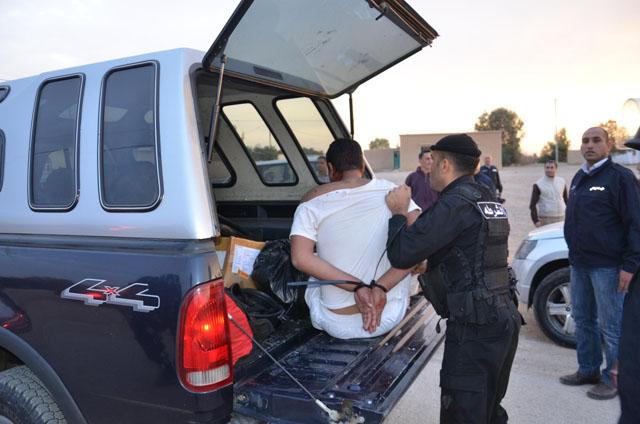You are here
Rise in crime rate registered over five-year period
By Dana Al Emam - Oct 14,2014 - Last updated at Oct 14,2014

AMMAN — The total number of crimes and felonies in the Kingdom has increased over the past five years, according to a Department of Statistics (DoS) study.
Over the surveyed period between 2009 and 2013, the number of crimes and felonies increased from 24,700 to 33,800, with the general crime rate rising from four to five cases per 1,000 people.
Commenting on the study, which was based on Public Security Department figures, Musa Shteiwi, head of the Centre for Strategic Studies, said the majority of crimes in Jordan can be blamed on "economic reasons".
"The recent economic changes, including the increase in unemployment and poverty rates, have contributed to the increase in crimes," Shteiwi told The Jordan Times over phone on Tuesday, adding that feelings of inequality in opportunities feed the tendency to commit crimes.
He described the increase in crimes as a "natural result of the current materialistic lifestyle", where individual feels pressured to secure a stable income, a house and a car.
Shteiwi attributed the social violence phenomenon and the increase of murders to political changes during the past three years.
"People started breaking the law to get their rights with their own hands because they don't feel the law is applied equally to everyone," he noted, highlighting the lack of public trust in the state's legal institutions, mainly due to their lengthy procedures.
"Suspending capital punishment might be a contributing factor to the increase in the number of revenge murders," Shteiwi said.
Noting that refugees have a "limited involvement" in crimes, he said demographic changes in the Jordanian community might affect its shared value system, which could loosen control over crime.
The DoS study shows that over 17,000 crimes took place in the capital in 2013, constituting 51 per cent of the total crimes for last year, while around 4,000 crimes occurred in Zarqa (around 12 per cent) and Irbid witnessed more than 3,500 crimes (10 per cent).
Shteiwi's explanation was that governorates with high populations are more likely to witness crime.
"Over 40 per cent of the Kingdom's population resides in Amman," he noted.
The sociology professor said crime can be further controlled if economic conditions improve, calling for boosting the sovereignty of the law and its equal enforcement on everyone.
He also urged legal entities that look into disputes and complaints to speed up procedures, "so that criminals do not evade the grip of justice".
|
Type of crime |
2009 |
2010 |
2011 |
2012 |
2013 |
|
|
Crimes |
Attempted murder |
392 |
451 |
575 |
513 |
561 |
|
Heavy injury |
706 |
807 |
903 |
1,071 |
1,070 |
|
|
Drug trafficking |
661 |
478 |
509 |
524 |
711 |
|
|
Kidnapping |
77 |
86 |
127 |
130 |
179 |
|
|
Molestation |
675 |
662 |
607 |
767 |
780 |
|
|
Felony |
Manslaughter |
26 |
30 |
20 |
24 |
34 |
|
Cheating |
1,417 |
1,497 |
1,903 |
2,030 |
2,175 |
|
|
Car theft |
2,618 |
2,589 |
4,348 |
4,908 |
5,039 |
|
|
Festive firing |
996 |
1,166 |
1,384 |
1,574 |
1,869 |
|
|
Possession of drugs |
2,626 |
2,897 |
3,184 |
3,811 |
5,417 |
|
|
Suicide |
34 |
49 |
39 |
86 |
108 |
|
|
Source: DoS study |
||||||
Related Articles
AMMAN — Jordan’s trade balance surplus with the US stood at JD231 million by the end of the third quarter of 2020, the Department of Statist
The industrial producers’ price index increased by 1.6 per cent in 2013 compared with 2012, according to Department of Statistics (DoS) figures.
Overall Jordanian exports, including re-exports, during the first 10 months of 2014 reached JD4.9 billion marking an increase of 6.1 per cent compared with the same period in 2013, according to a foreign trade report released by the Department of Statistics (DoS) on Sunday.
















